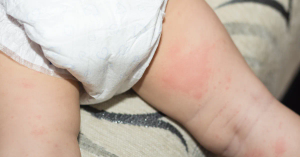Finding appropriate rehab for kids is perhaps one of the most challenging experiences a parent can face. Whether your child needs rehabilitation for substance abuse, mental health issues, behavioral problems, or physical conditions, the decisions you make today will impact their entire future. This blog post is for parents who are facing this difficult decision. We'll discuss the important factors to consider when choosing a rehab center for your child and the red flags to watch out for.
The Hard Truth About Youth Rehabilitation
The reality is stark: not all rehab centers claiming to specialize in youth care actually provide appropriate treatment. Every year, countless families face devastating consequences from choosing inadequate or inappropriate rehab for kids. Some facilities use outdated methods, lack proper licensing, or employ staff without proper training in pediatric care. The consequences can be severe: trauma, worsened conditions, or the development of new psychological issues.
Essential Questions Every Parent Must Ask
Before entrusting your child to any facility, consider these questions:
Is the facility specifically designed for children? Adult rehabilitation centers often lack the specialized approach needed for young minds and bodies. Look for rehab for kids that employs pediatric specialists, child psychologists, and staff trained in child development.
What's their treatment philosophy? Some facilities still use controversial "tough love" approaches that can traumatize children. Others might rely heavily on medication without addressing underlying issues. Seek centers that offer evidence-based, age-appropriate treatments.
How do they handle education? Your child's academic progress shouldn't halt during rehabilitation. Quality centers integrate educational programs that keep children on track with their studies while addressing their health needs.
Red Flags That Demand Attention
Watch out for these warning signs when researching rehabilitation facilities:
- Limited family involvement or restricted communication with your child
- Resistance to providing detailed information about their treatment methods
- Lack of individualized treatment plans
- Absence of proper medical staff during all hours
- No clear aftercare planning
- High staff turnover rates
- Unwillingness to provide references from other families
Critical Elements of Quality Youth Rehabilitation
A reputable rehab for kids should offer the following:
- Comprehensive Initial Assessment: Every child deserves a thorough evaluation before treatment begins. This should include medical, psychological, educational, and social assessments to create a holistic treatment plan.
- Family Integration: Quality rehabilitation centers understand that healing extends beyond the child. They should offer family therapy, regular updates, and guidance for parents on supporting their child's recovery.
- Age-Appropriate Treatment Methods: Children aren't small adults. Their treatment should reflect their developmental stage, incorporating play therapy, art therapy, and other age-appropriate interventions.
- Clear Safety Protocols: From medication management to emergency procedures, every aspect of your child's safety should be clearly defined and explained to parents.
Common Pitfalls Parents Face
Many parents inadvertently make decisions based on misconceptions or insufficient information about rehab for kids. Some common pitfalls include:
- Rushing into Decisions: The urgency to find help can lead parents to choose a facility without adequate research.
- Ignoring Special Needs: Not all centers cater specifically to children with unique needs such as autism or ADHD.
- Overlooking Aftercare: Failing to consider aftercare options can result in relapse or inadequate support post-treatment.
These oversights can lead to further complications in a child's recovery journey, emphasizing the importance of thorough planning and informed decision-making.
Making the Final Decision
Take these practical steps before making your choice:
- Visit Multiple Facilities: Nothing replaces an in-person visit. Observe the environment, staff interactions, and other children's demeanor. Trust your parental instincts about the atmosphere.
- Check Credentials Thoroughly: Verify all licenses, accreditations, and staff qualifications. Contact your state's licensing board to confirm the facility's standing and investigate any complaints.
- Speak with Other Families: Request contact information for families willing to share their experiences. While maintaining privacy, reputable centers usually have parents willing to discuss their journeys.
- Review Treatment Plans: Get specific details about how they'll address your child's unique needs. Generic programs rarely provide optimal results in youth rehabilitation.
The Financial Aspect
While cost shouldn't be the primary factor in choosing rehab for kids, it's a reality many families face. Investigate:
- Insurance coverage and payment plans
- Scholarship programs or financial assistance
- Hidden costs or additional fees
- Length of recommended stay and associated costs
Conclusion
The right rehabilitation center can transform your child's life, providing them with tools for lasting recovery and healthy development. Take your time with this decision, do thorough research, and never settle for a facility that doesn't meet all your requirements. Your child's future depends on making an informed, careful choice in their rehabilitation journey.
Remember that choosing a rehabilitation center is just the first step. Prepare yourself and your child for the journey ahead. Stay involved, advocate for your child's needs, and maintain open communication with the treatment team.








